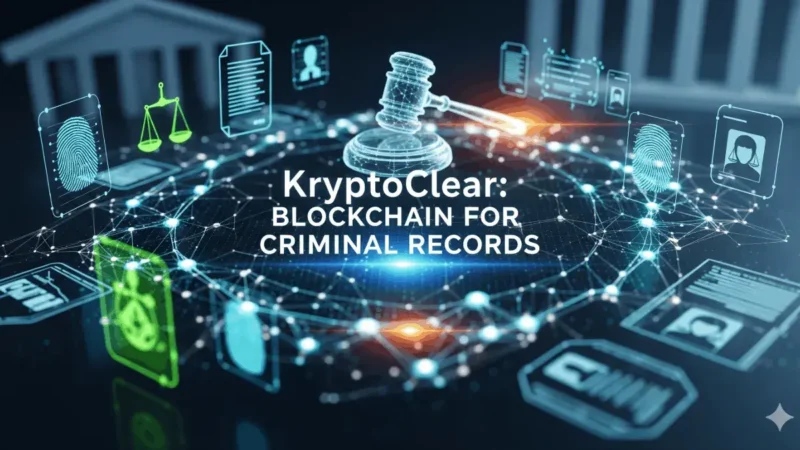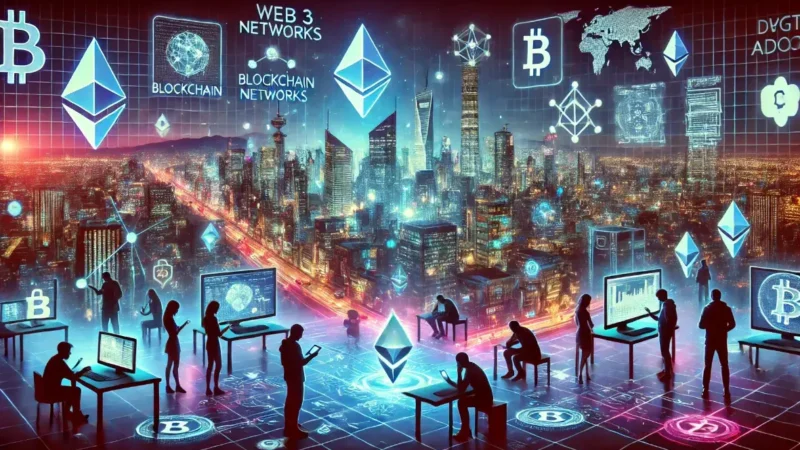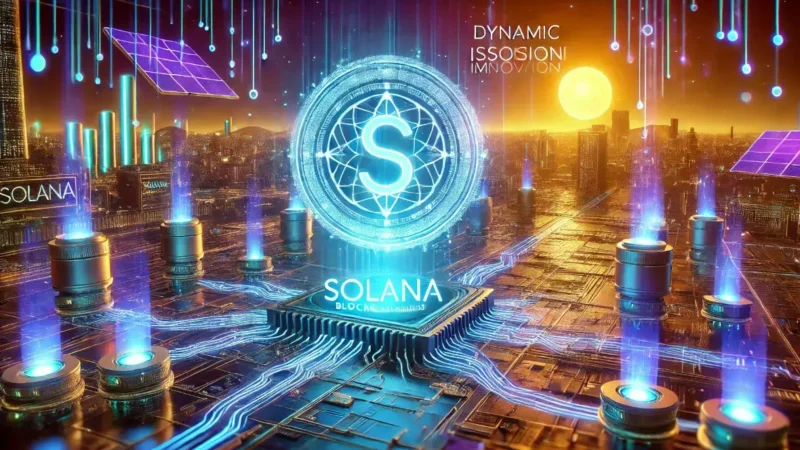Blockchain Updates: A Comprehensive Guide to Trends and Innovations

Blockchain technology continues to revolutionize industries worldwide, making it crucial to stay informed about blockchain updates. Whether you’re an enthusiast, developer, or investor, understanding the latest advancements in blockchain can help you navigate this transformative field.
1. What is Blockchain Technology?
Blockchain is a decentralized, distributed ledger that records transactions across many computers. This innovation ensures transparency, security, and immutability.
Key Features:
- Decentralization: No central authority controls the data.
- Security: Cryptographic techniques safeguard information.
- Transparency: All transactions are publicly verifiable.
How Blockchain Has Evolved
The technology started with Bitcoin in 2009 but has since expanded far beyond cryptocurrencies, finding use in finance, healthcare, supply chains, and more.
2. Why Blockchain Updates Matter
Blockchain is evolving rapidly. Staying up-to-date allows individuals and businesses to harness its potential fully.
Benefits of Tracking Updates
- Innovation Adoption: Leverage new features to stay competitive.
- Security Enhancements: Protect assets from emerging threats.
- Strategic Investments: Identify trends shaping the future.
3. Top Blockchain Updates of 2024
The past year has brought significant breakthroughs in blockchain technology.
Layer 2 Scaling Solutions
Platforms like Ethereum have introduced Layer 2 solutions to address scalability issues. These solutions reduce transaction costs while increasing speed.
Zero-Knowledge Proofs (ZKPs)
ZKPs enhance privacy by allowing data verification without revealing the underlying information. This feature is now widely integrated into various blockchains.
NFT 2.0
The next generation of NFTs includes dynamic and programmable functionalities, enabling real-world applications like digital rights management.
4. Blockchain Applications Across Industries
Finance
Blockchain has disrupted the financial sector with decentralized finance (DeFi), smart contracts, and peer-to-peer lending platforms.
Recent Blockchain Updates:
- Integration of Central Bank Digital Currencies (CBDCs).
- Enhanced interoperability among blockchain networks.
Healthcare
The healthcare industry uses blockchain to improve data security, patient record management, and drug traceability.
Recent Blockchain Updates:
- Use of blockchain in clinical trial data validation.
- Enhanced patient privacy solutions.
Supply Chain Management
Blockchain ensures transparency and accountability in the supply chain, from raw materials to finished products.
Recent Blockchain Updates:
- Increased adoption of blockchain by global shipping companies.
- Real-time tracking of goods using IoT integration.
5. The Rise of Green Blockchain Solutions
Blockchain’s energy consumption has been a concern, but the industry is addressing this with energy-efficient protocols like Proof-of-Stake (PoS).
Noteworthy Innovations
- Ethereum’s Transition to PoS: A major step in reducing energy usage.
- Carbon-Neutral Initiatives: Projects focused on offsetting blockchain emissions.
6. Challenges and Opportunities in Blockchain
Challenges
- Scalability: Handling large transaction volumes remains a hurdle.
- Regulation: Governments worldwide are still defining blockchain policies.
Opportunities
- Cross-Border Payments: Blockchain simplifies and secures international transactions.
- Digital Identity Management: Enhances online identity verification systems.
7. The Role of AI in Blockchain Updates
Artificial intelligence (AI) and blockchain are increasingly intertwined, with AI enhancing blockchain’s efficiency and decision-making capabilities.
Examples of Collaboration:
- Data Analysis: AI tools process blockchain data faster.
- Smart Contracts: AI refines contract execution accuracy.
8. Blockchain Security Advancements
Security remains a top priority in blockchain development. Recent updates include:
- Post-Quantum Cryptography: Preparing for quantum computing threats.
- Advanced Consensus Mechanisms: Enhancing network integrity.
9. Trends Shaping the Future of Blockchain
From decentralized social media to tokenized assets, these trends are poised to redefine blockchain’s role in our lives.
Key Trends:
- Metaverse Integration: Blockchain powers virtual economies.
- Interoperability Solutions: Bridging multiple blockchains seamlessly.
10. The Global Impact of Blockchain Updates
Developing Countries
Blockchain fosters financial inclusion by providing access to banking services for the unbanked population.
Developed Nations
Governments in countries like the USA and EU are exploring blockchain for public services, including voting and land registry.
11. How to Stay Informed About Blockchain Updates
Keeping pace with blockchain advancements is vital.
Trusted Resources
- News Websites: Platforms like CoinDesk and CryptoSlate.
- Community Forums: Reddit and GitHub discussions.
- Educational Platforms: Online courses on blockchain technology.
12. Blockchain in Cryptocurrencies
While blockchain has diversified, its foundational role in cryptocurrencies remains critical.
Major Developments
- Bitcoin Upgrades: Improved security and functionality.
- Altcoins: Innovative tokens offering unique features.
13. Blockchain Standards and Regulations
As blockchain adoption grows, so does the need for regulation.
Key Updates
- Data Privacy Laws: Aligning blockchain solutions with GDPR and CCPA.
- Taxation Policies: Governments clarifying tax rules for crypto assets.
Stay informed, read the latest crypto news in real time!
14. Frequently Asked Questions
What are the latest blockchain updates?
The latest developments include Layer 2 scaling solutions, ZKPs, and energy-efficient protocols like Ethereum’s PoS transition.
How does blockchain affect businesses?
Blockchain enhances transparency, security, and efficiency, offering businesses a competitive edge.
What are green blockchain solutions?
These are environmentally friendly initiatives that reduce blockchain’s carbon footprint, such as transitioning to PoS models.
Why is blockchain important in healthcare?
Blockchain secures patient data, enhances privacy, and ensures traceability in drug supply chains.
How do regulations impact blockchain?
Regulations provide clarity and legitimacy, fostering adoption while ensuring compliance with laws.
Can blockchain integrate with AI?
Yes, AI improves blockchain’s data processing and contract execution, leading to more intelligent and efficient systems.
15. Conclusion
The blockchain landscape is evolving faster than ever. By staying updated on blockchain updates, individuals and businesses can unlock opportunities, mitigate risks, and remain at the forefront of technological innovation.
Whether you’re an industry professional or a curious learner, keeping pace with these advancements is essential to harnessing blockchain’s full potential.






2 thoughts on “Blockchain Updates: A Comprehensive Guide to Trends and Innovations”